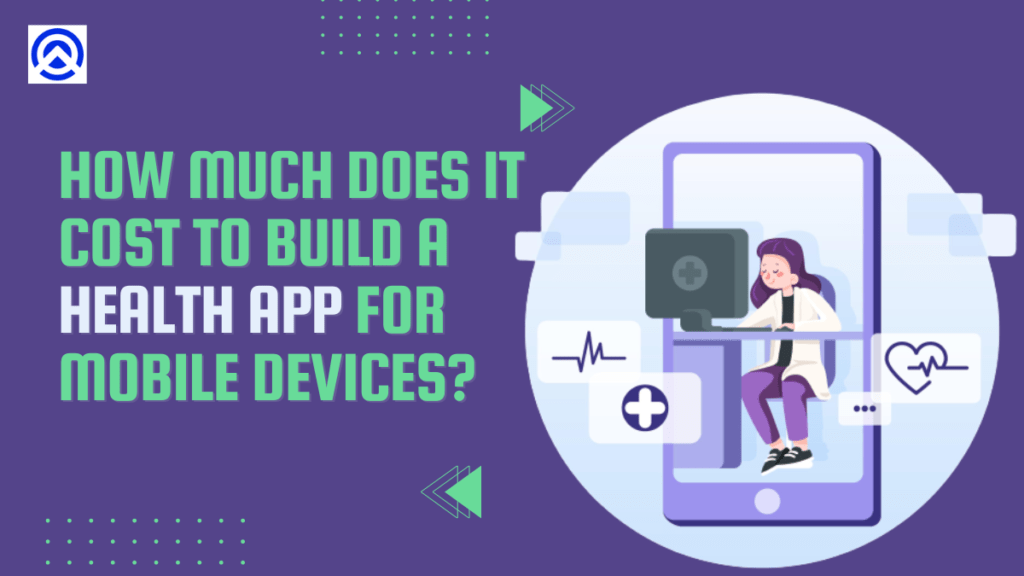In today’s digital era, smartphones and mobile applications have become an integral part of our lives. Healthcare is no exception to this trend. mhealth apps are becoming increasingly popular, as they offer a convenient and accessible way for people to manage their health and wellness. The demand for medical apps has been on the rise, and it is expected to grow further in the coming years.
However developing a mHealth app is a challenging undertaking that requires significant investment of time and resources. In this article, we will discuss the various factors that impact the cost of healthcare app development and provide an estimate of the overall expenses involved.
Factors Affecting the Cost of Developing a Medical App
1. Complexity of the App
The level of complexity is the most crucial aspect that influences the cost of a healthcare mobile app development. A simple mhealth app that offers essential features, such as symptom recording, medication tracking, or clinic location, would require fewer resources and less time than a sophisticated app that incorporates cutting-edge technologies like machine learning or artificial intelligence.
2. Platform
Another factor that influences the cost of developing a medical app is the platform it is built on. There are two primary platforms for healthcare mobile application development: iOS and Android. Developing an app for both platforms would require additional resources, as both platforms have their unique development requirements.
3. Design
The design of the app is another important factor that affects the cost of development. A well-designed app with an intuitive user interface and user experience requires more time and effort than a basic app with a simple design.
4. Development Team
The size and composition of the development team also affect the cost of development. A team with a wide range of skills, such as healthcare app developers, designers, testers, and project managers, would require more resources than a small team.
5. Regulatory Compliance
Medical apps are subject to regulatory compliance, which adds to the cost of development. The app must comply with various regulations, such as HIPAA (Health Insurance Portability and Accountability Act) and FDA (Food and Drug Administration).
6. Integration with External Systems
Medical apps often require integration with external systems, such as electronic health records(EHR) or payment gateways. Integration with external systems adds to the complexity of the app and requires additional resources.
7. Maintenance and Updates
Developing a medical app is not a one-time investment. The app requires ongoing maintenance and updates to ensure that it remains up-to-date and secure. The cost of maintenance and updates should be considered when estimating the total cost of development.
Estimating the Cost of Developing a mhealth App

Now that we have identified the factors that affect the cost of developing a medical app, let’s estimate the total cost of development.
According to a study by Research2Guidance, the average cost of developing a mhealth app is around $425,000. However, this cost can vary significantly depending on the factors discussed above.
Here are some points to consider when estimating the cost of developing a mHealth app, along with an approximate cost for each:
User interface (UI) design:
The UI design is a critical aspect of the app’s success, and a well-designed interface can increase user engagement and satisfaction. The cost of UI design can range from $5,000 to $20,000 or more, depending on the level of detail and design elements required.
Data security and privacy:
Healthcare apps collect and store sensitive user data, making data security and privacy essential considerations. The cost of implementing robust data security measures can range from $5,000 to $15,000 or more, depending on the app’s complexity.
Integration with medical devices:
Many mHealth apps require integration with medical devices, such as blood glucose meters or blood pressure monitors. The cost of integrating the app with medical devices can range from $5,000 to $20,000 or more, depending on the complexity of the integration.
Backend infrastructure:
The backend infrastructure is the backbone of the app, powering its functionality and performance. The cost of developing a robust backend infrastructure can range from $20,000 to $50,000 or more, depending on the app’s complexity.
Regulatory compliance
Health apps are subject to several regulations, including HIPAA and FDA guidelines. Ensuring compliance with these regulations can require legal and regulatory experts, increasing the overall cost. The cost of regulatory compliance can range from $10,000 to $50,000 or more, depending on the app’s complexity.
Artificial intelligence (AI) integration:
Integration of artificial intelligence (AI) is gaining popularity in mHealth apps, providing users with personalized experiences and more precise diagnoses. However, the cost of integrating AI into an app varies based on the complexity of the integration and can range from $10,000 to $50,000 or more.
Cross-platform development:
Developing an app for both iOS and Android platforms can increase the overall cost, as it requires more resources and time. The cost of cross-platform development can range from $10,000 to $30,000 or more, depending on the app’s complexity.
Conclusion
It is essential to carefully consider these factors and estimate the total cost of development before embarking on a healthcare app development project. Working with an experienced development team can help ensure that the project stays within budget while delivering a high-quality medical app that meets users’ needs.
While the cost of developing a medical app can be significant, the benefits of a well-designed and executed app can far outweigh the cost. Medical apps have the potential to revolutionize healthcare by providing patients with the tools they need to manage their health effectively. With careful planning and a clear understanding of the costs involved, developing a successful medical app is possible.


